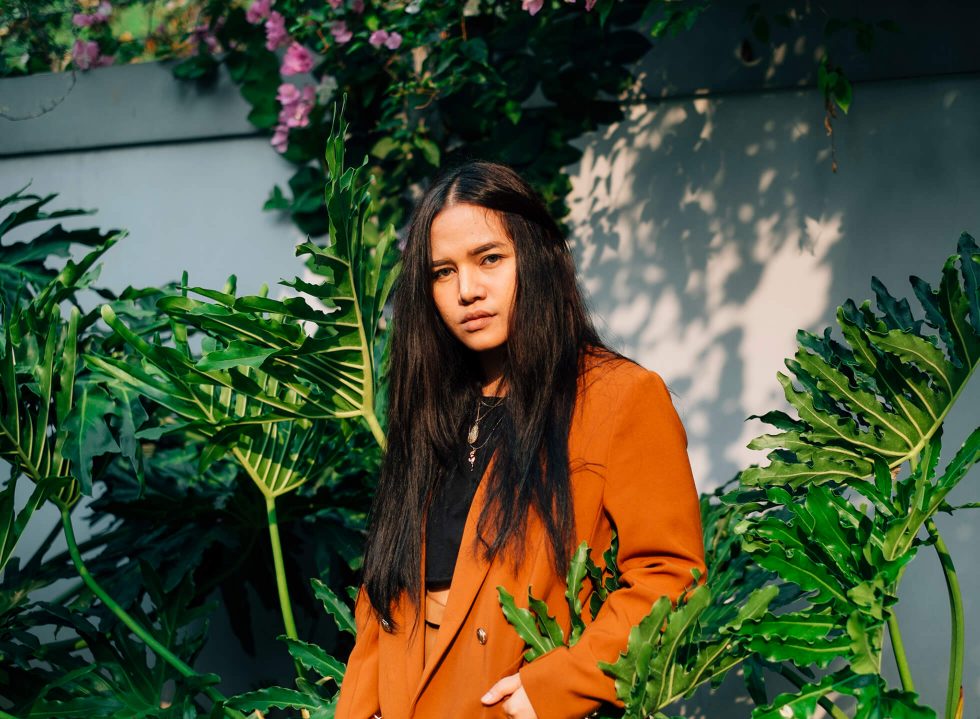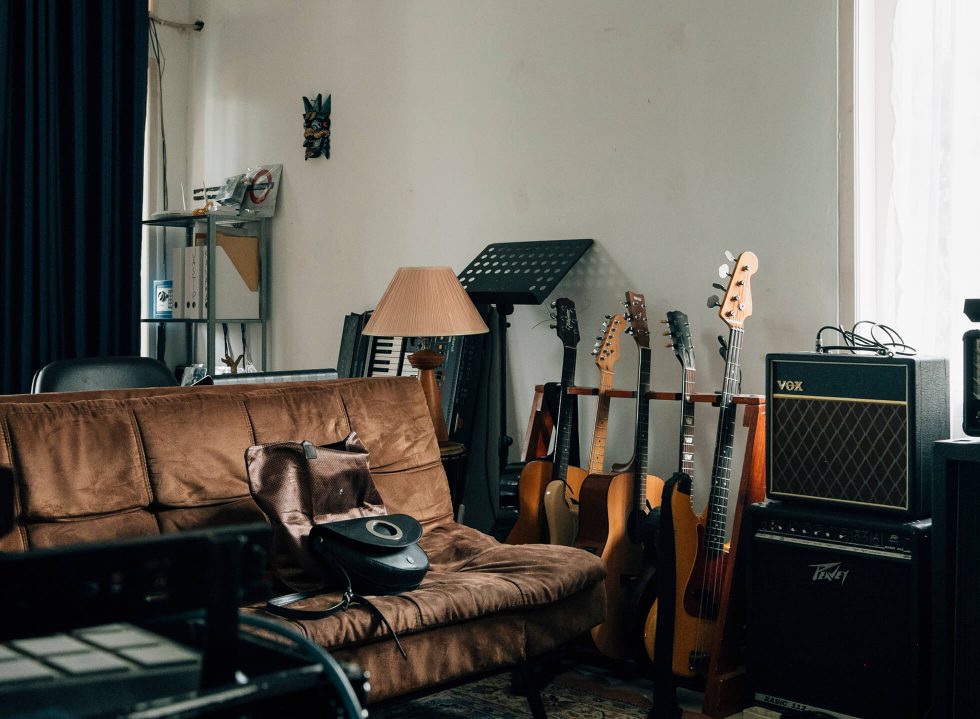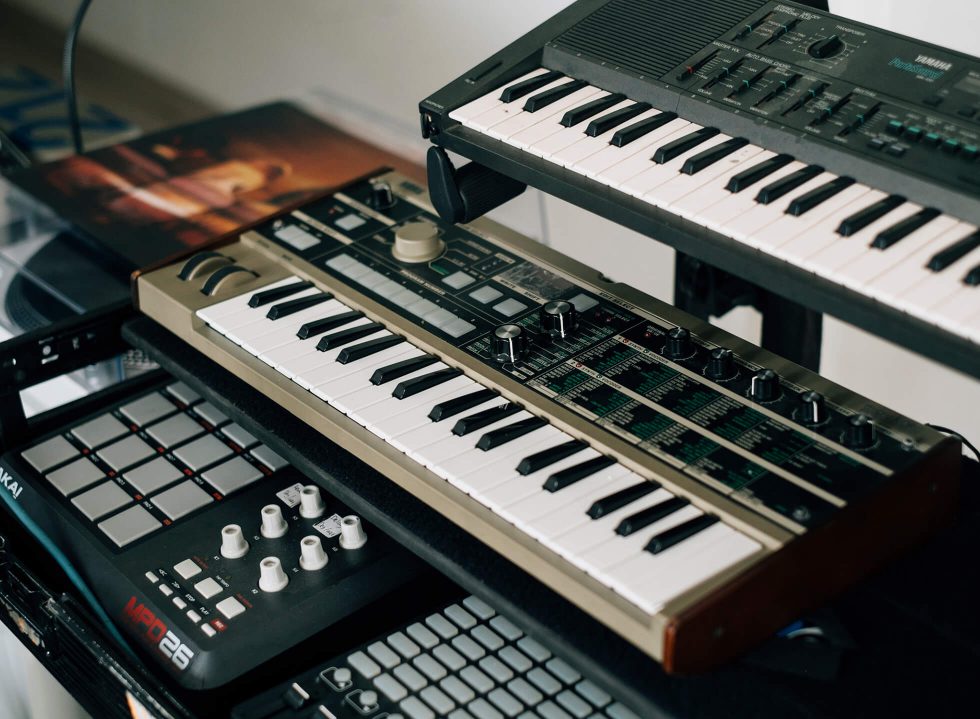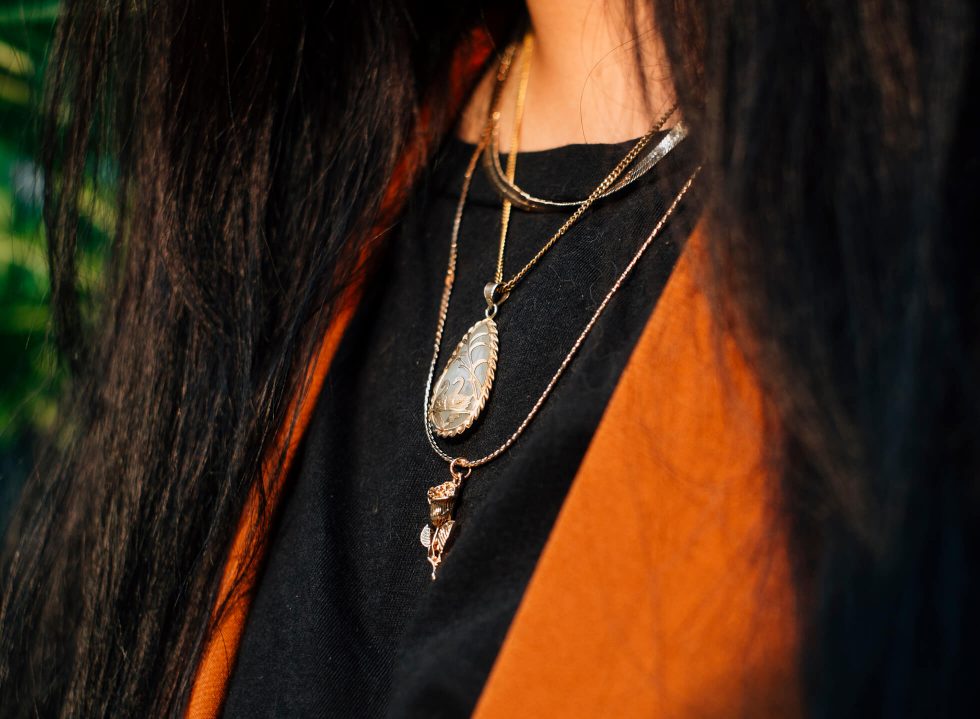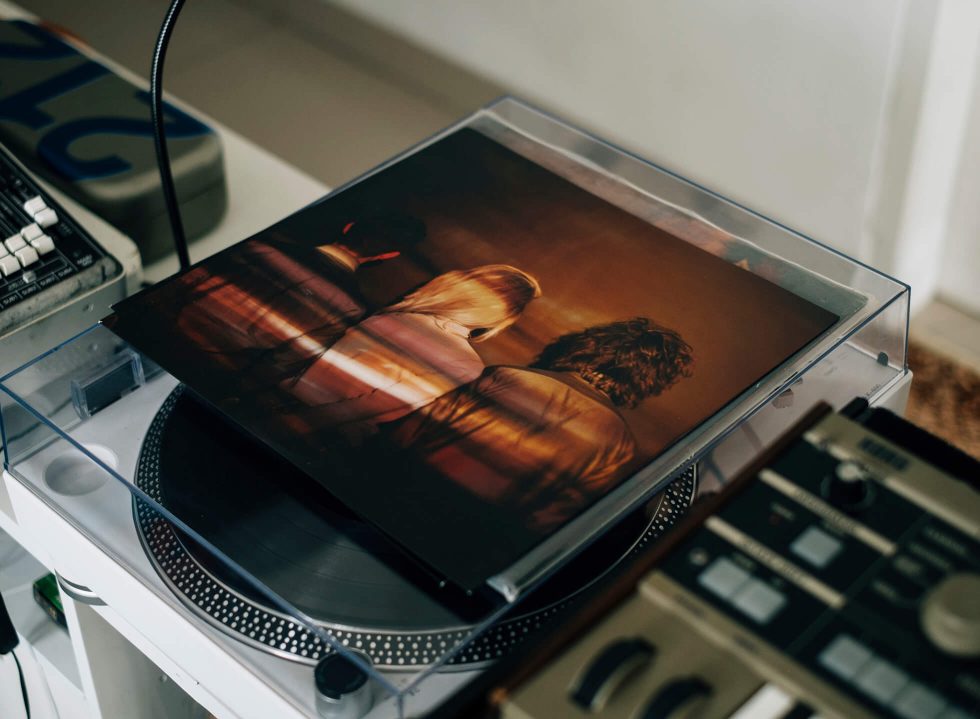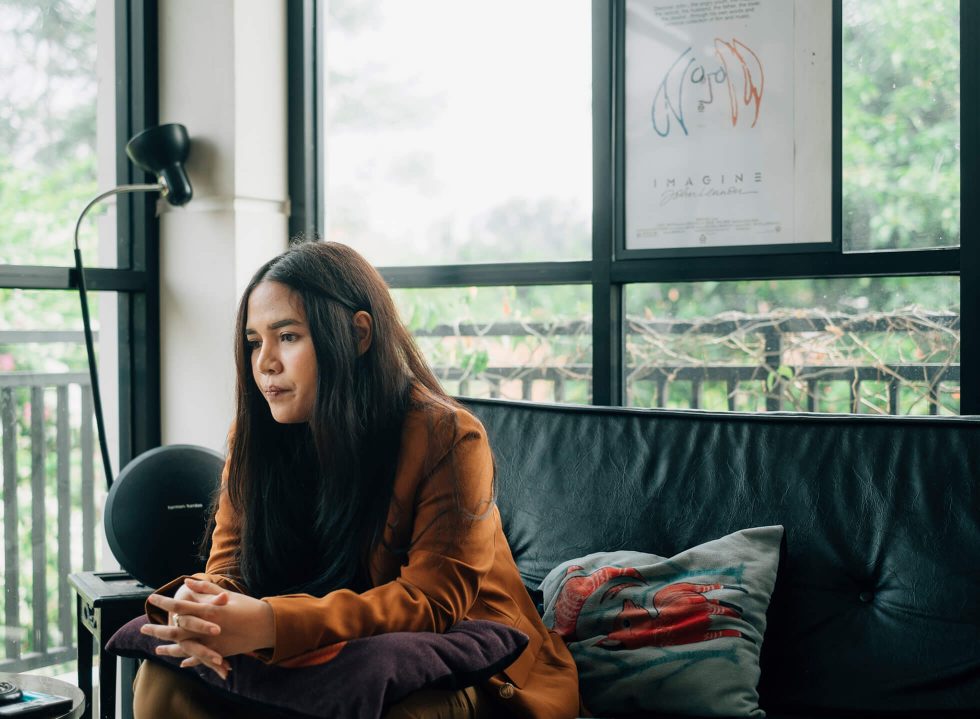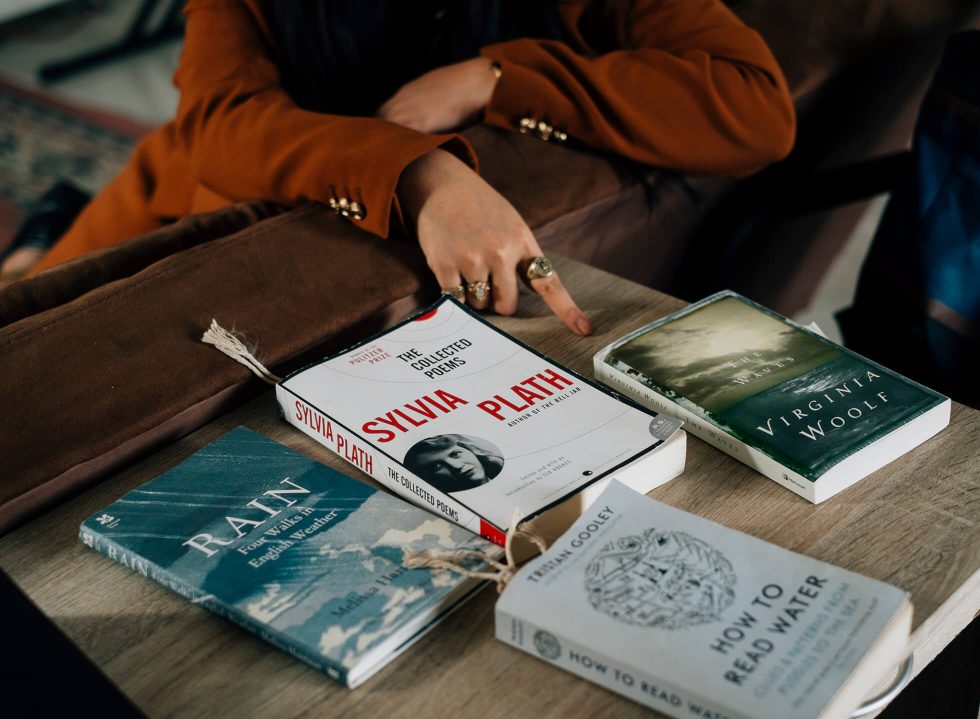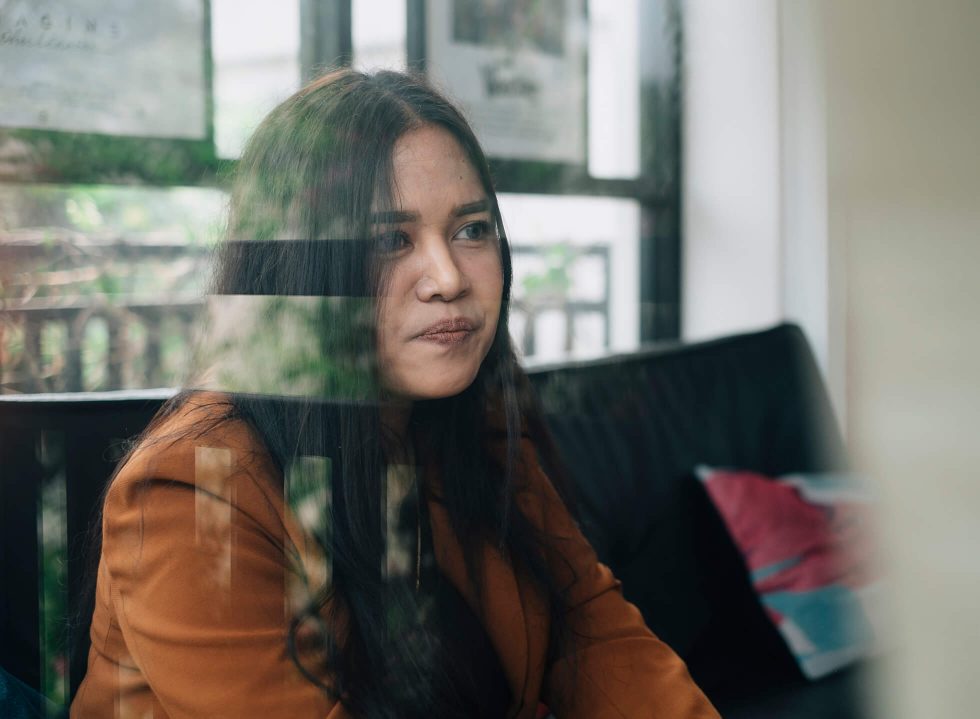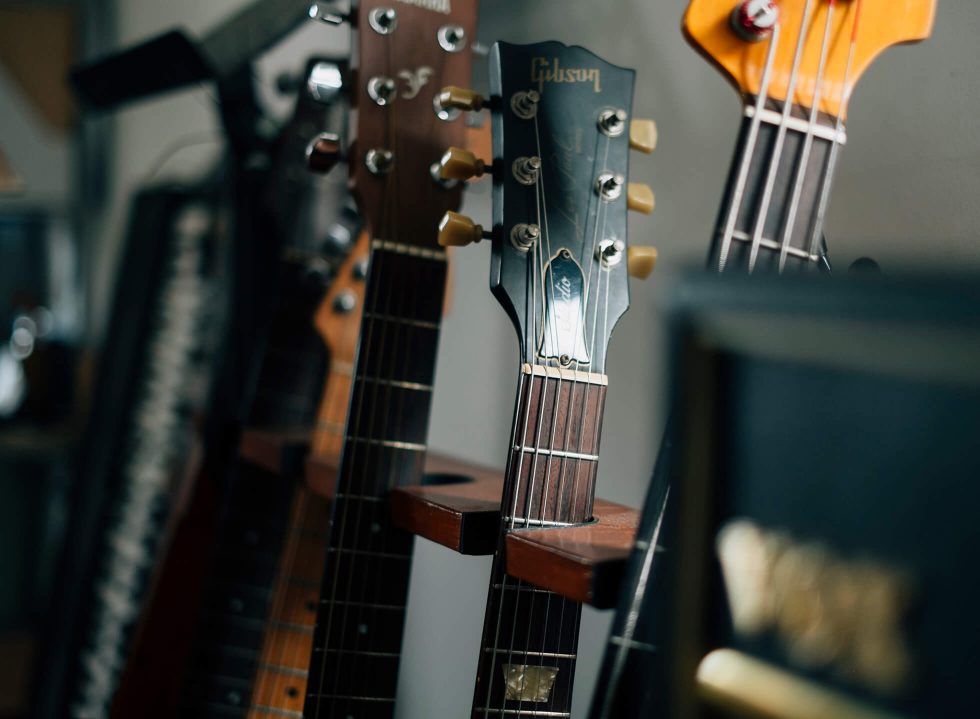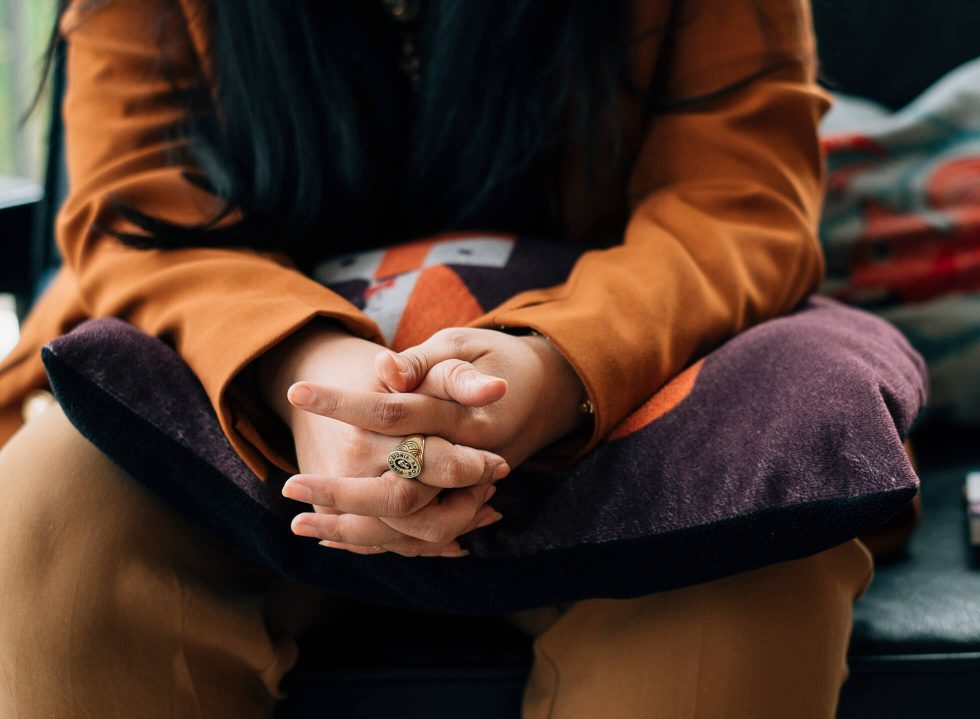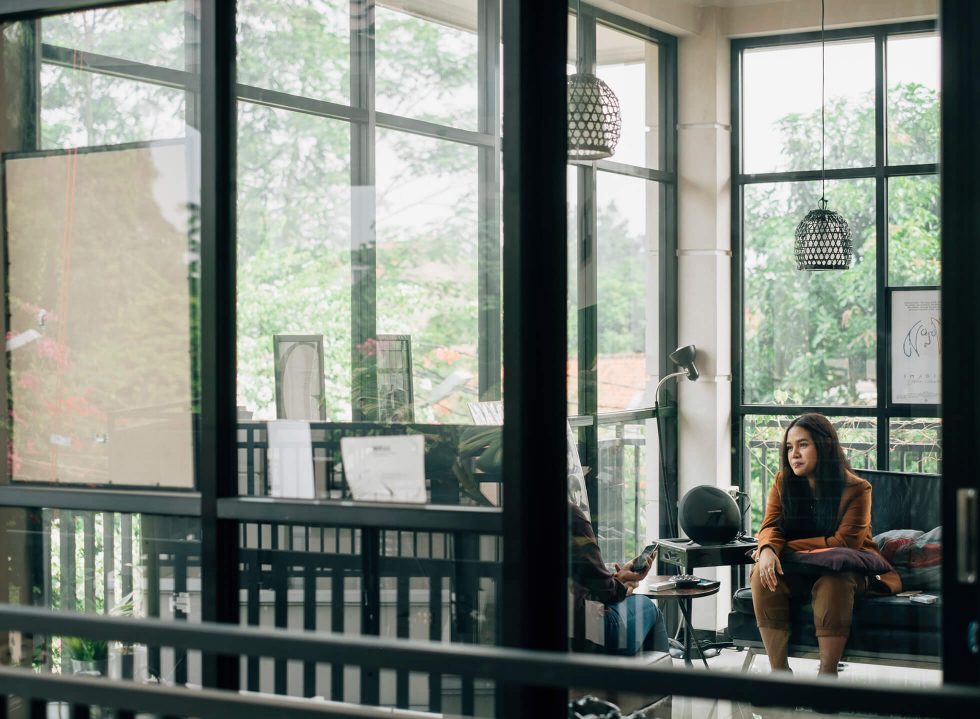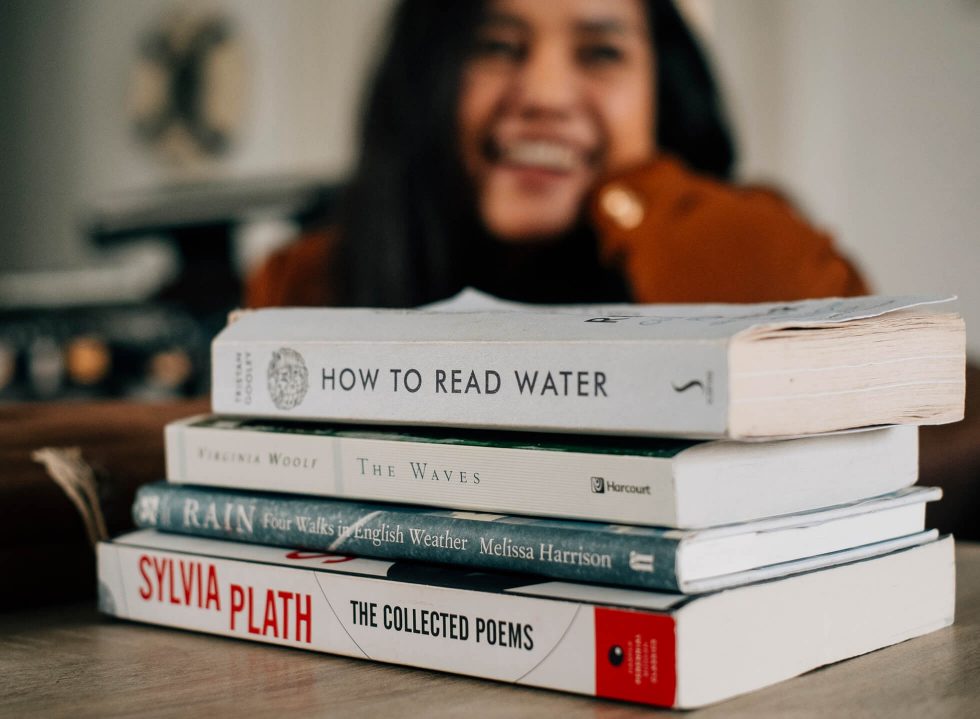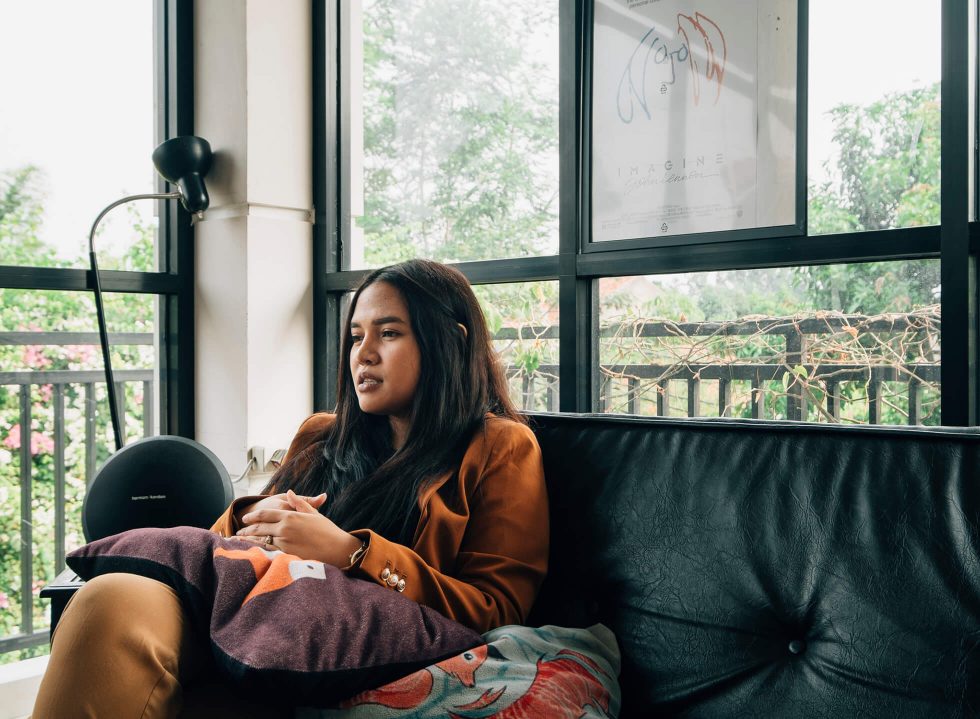Five years ago, Neonomora started off well as a recording artist. Her very first single ‘You Want My Love’ at the end of 2012 launched her singing career. Her debut EP went straight to be awarded as one of the Best Indonesian Albums for two consecutive years in 2013-2014 by Rolling Stones Indonesia and earned her the nomination for Breakthrough Artist of The Year by NET.TV in the following year; and this happened before she launched her first album.
She had become a regular fixture in major music festivals and soon after the launch of her debut album SEEDS, she set up a recording label, Frisson Entertainment, with her then husband. The enterprise nurtured young, budding musicians (Elephant Kind and Scaller, among the few) whoe have swiftly found fame in the industry. The path ahead of her looked utterly promising.
Yet, almost everything crumbled, piece by piece. “I felt like I hit rock-bottom,” she says. We meet in a recording studio around Cilandak. She breezes into the studio, earphones in both her ears, her cheery greeting immediately followed by a cordial hug.
Neonomora is Ratih Suryahutamy – or Ra, as she prefers to be called – a bubbly singer with a sonorous vocal. Today she wears a terracotta blazer and a pair of brown pants. Her long, jet-black hair, frames her soft countenance. This isn’t the first time I meet Ra. Three years ago, at the pinnacle of her career, we met for an interview. Back then, she pulled off an all-black outfit and a pair of shades (which she wore throughout the entire interview, just as how a rock star would), casting an air of a diva with mysteries of fathoms deep.
But the Neonomora whom I meet today is different. She’s more unabashed, relaxed and accessible. A month ago she came to me, wanting to share the story behind her second and latest album Waters. “A story that I haven’t shared publicly to anyone yet,” said the singer. And that has brought us here today.
“I think I came to know that I’ve been really dark because of my childhood.”
“This is where I recorded some of the songs for Waters,” she tells me. Her speaking voice does not differ much from her singing; robust and vehement, it left me transfixed when I first heard her in G’Day Mate concert in 2015. Her voice, enveloped in a combination of folk-rock, synth-pop and R&B tunes, is decidedly the main factor that marks her differently than other female singers in Indonesia who mostly adhere to pop genre – a sure-fire formula to gain listeners. Thanks to that, she’s been dubbed as one of the Indonesian singers to watch, both by local and international media. It wouldn’t be an overstatement to say that she’s destined to be on the stage.
Just like most musicians, Ratih’s passion for singing started early when she was just three years old. Due to her father’s diplomatic obligation with the Ministry of Trade, Ratih had constantly moved from one country to another ever since she was young. In 1991, they moved to Chicago, United States. “That’s when everything started,” she says.
On a Christmas Eve celebration, she got the chance to sing on stage. She was struck by the experience. “I told my mum right then, ‘I think I want to be a performer,’” Ratih recalls. Her mother, a singer herself back in the day, encouraged Ra. She even bought one of Mariah Carey’s albums for Ratih to practice her vocals when she was nine and also taught her some jazz. During that time, her parents would play soul music from the likes of Nina Simone, Aretha Franklin, Ella Fitzgerald and Etta James, where she got most of her vocal influences from.
To Ra, singing was her way of meditation, escaping the reality. She poured it in her performances, and, much later, in her songs. Most of her listeners would describe her songs as energetic, yet dark. “I think I came to know that I’ve been really dark because of my childhood. When I was a kid, I was abused by my cousin. Well, I was like five, but the memory lingers. And I think that’s how the darkness kind of emerged in me.”
“He smashed our guitar on the floor.”
Moreover, she was also bullied when she went to high school in Jakarta. She couldn’t really get along with her classmates, perhaps due to living abroad for years. One time, she was locked in the bathroom and left for hours. “I was crying like hell. I had to survive for myself because the teachers acted as if nothing happened. I didn’t tell my parents about all these incidents. Because I’m the type who keeps it to herself.”
Ra’s love of singing and performing carried on upon growing up. She was part of the school choir and had also performed in various cultural events in Indonesian Embassies during her time in the US, Beijing (China), Taiwan, and Perth (Australia). Her study experience in Perth opened her ears to a wider variety of music genre, citing Björk, Arcade Fire, Florence + the Machine, Solange Knowles among many others.
Unlike her mother, Ra’s father was quite averse to her obsession with music. For someone who grew up in strict military environment as her father did, music doesn’t qualify as a solid career path. He’s a man of few words, according to Ra. Sometimes she would get terrified when he speaks.
“I remember one day Bam (Ra’s brother) and I were jamming and dad was livid. He smashed our guitar on the floor. He was very strict over that kind of situation,” she recalls.
But no one could stop her from her passion, not even her parents. She had set her sight on building her own momentum, with the help of her brother Bam Mastro, who studied music technology. Together, they composed ‘You Want My Love’ and went through all the steps to release the song. Everything was done independently, where she remained “unsigned to any recording label”. Then, soon after releasing the song online, the debut single was a hit. “If it weren’t for Bam, I don’t think I’d be here now. We complete each other and appreciate the depth that we have as an artist,” says Ratih.
“I wouldn’t have imagined this years ago.”
All these she achieved with her parents, whom at the time were still serving their duties in Taiwan, kept in the dark. But it wasn’t long until they found out. By pure chance, they read about Ratih’s foray in the music industry from a local magazine. “My dad asked me questions. It was really intimidating,” she cackles. But Ratih didn’t reveal the whole story – she didn’t want them to know that she quit her full-time job to focus on her music.
“I was lying [about my job] until mid-2013, that was when I had to perform at Java Rockin’ Land. I decided to come clean and told my dad, ‘This is what I do. I’ve been wanting to do this for a very long time. But I would want to have your approval.’ His answer was only, ‘Terserah (roughly translated to up to you).’ It wasn’t a yes or a no! It felt like I was granted a sort of space, but not entirely. It felt awful.”
The path it took to convince her father was long and arduous. Only very recently, he caved in. Ratih got nominated for Best Electronic Song (for a single in collaboration with KimoKal called ‘One’) in a major music award, Anugerah Musik Indonesia or best known as AMI Awards, this year. “My dad came. I think it was a revelation to see him sitting next to me during the awards as huge as this one,” she says. Now, she has her father’s full support. He would post on social media of Ra’s gigs and recent releases. “I wouldn’t have imagined this years ago … He used to belittle music, until he knows, ‘Okay, this is the shit!’”
Ra’s career in music may have walked at a gradual pace, but positively steady during those years. Now 29 years old, Ratih tells me how time has seemed to fly fleetingly as she approaches 30. “Is this normal? Do you feel this too?” she laughs heartily. But it’s only natural for her to feel that. After all, she’s gone through a lot recently – which brought the conversation back to her second album, Waters.
“It came like a storm to me.”
The idea for the album came when her best friend was murdered. “It came like a storm to me. He was a very kind person. I felt that it was so unfair for him to pass away under such [brutal] ways,” she says. “When I went to his funeral, suddenly these sentences popped up in my mind, ‘the water is all I have and now the water is all I learned from’. As a friend, he was my ‘water’, the one who soothes me. After that, I went home and recorded the tunes and lyrics.”
Little did she know that the death of her best friend foreshadowed successive waves that came after. The next wave came from Frisson Entertainment, an institution that she was proud to raise with her husband for years. The talents had decided to leave the institution, and these are the people whom Frisson had nurtured from zero. “This is the first time I saw the true colours of a human – when they have their own goals, they would forget others. And it hurts more because you have poured your everything for these people.”
This, in turn, had put the institution heavily in debt. No sooner than this, another wave struck. “We sacrificed almost everything [for Frisson]. And it affected my marriage. In the end, my husband and I just decided to not go any further with either Frisson Entertainment nor our marriage,” she says.
But it wasn’t the last divorce Ratih had to endure. Her bandmates in Neonomora decided to go separate ways to pursue their own music careers (she shared similar band members with Elephant Kind, an indie pop band led by her brother). She was left alone.
“I felt like I was pulled into the deepest ocean.”
“Separation is not something that I can cope up with. I thought, ‘Oh God, I don’t think I will have another friend that could do this with me.’ Cause to me, it’s very hard to trust someone to play music with you on stage,” she admits. She fell apart, her self-esteem crumbled and trusting people again would be difficult. In the end, she didn’t want to write songs and be on stage anymore. “I felt like I was pulled into the deepest ocean – I felt that this is what the reality is when you’re an artist.”
During this course, a few of her close friends came to her support. One of them was Ibnu Dian, vocalist of Matter Halo, a band which she had worked with in Frisson Entertainment. “She’s very supportive to her friends, she’d do all she could to help others. I guess that’s why her environment would naturally support her in return,” Ibnu told me over a phone interview.
He convinced Ra to go back into making music. They would stay awake, pull all-nighters and record more songs until everything was done. The result is her tell-all album, Waters. Through it, she divulges the depths of her feelings, “I just had to open [myself up]. Waters has to be as open as possible, I don’t want to hide anything anymore,” she says of the album.
Aside from her personal experience, the album was also inspired by some of the books she read. Her greatest influence was Sylvia Plath’s poems and Virginia Woolf’s The Waves – the latter being the main inspiration for the song ‘Waves’. Uniquely, both authors experienced sexual abuse as a child, which somehow relatable to Ratih’s past.
“The ground will try to pull you down / If your heart is hurting / Your faith is wronged / No one to hold / Left all alone / Just feel it,” a few lines of lyrics from Waves, one of the main songs in the album, clearly speak of her vulnerabilities. “It wasn’t hard to capture what she wanted to deliver in the songs, because she wrote from the heart. This is her expressing herself honestly,” said Ibnu about the experience of working for Waters.
“I had my vulnerabilities but I didn’t show it.”
‘Waves’, ‘Lies’ and ‘Blinding’, come supercharged with emotions and Ratih’s powerful vocals. But besides spilling all her feelings, she tells me that the songs also serve as an advice to herself. In ‘Waves’ she sings, “We dream, we fail, we try, we learn, we could be wrong / Destruction’s passed, today is time to reborn.” And there are also several titles, such as ‘Tears Stop Falling’ and ‘Be Still, My Soul’, loaded with self-advice to remind herself to keep it together.
True, the “destruction has passed” and now she is “reborn”. The past is in the past, she says. “Once people do something bad to you, it leaves an impact. But I feel I was brought to just forgive.” She admits that the successive waves that struck her were indeed, hurtful, “Because everything lingers,” she says.
“In SEEDS, I was trying to be a strong woman. I had my vulnerabilities but I didn’t show it. I wanted people to regard me as a strong woman,” she says. In her past performances, she would wear an all-black outfit and face painting on stage, projecting this mysterious persona. “[During that period] I felt like I was hiding something about me. Whereas in Waters, this is me. Not the one whom you saw before – Neonomora. It’s a stage name, a name that I invented myself. This is the real me, Ratih Suryahutamy. That’s Waters.”
Out of curiosity, I ask her. Would you do it again, the face painting? “I don’t think so. I mean, that was me five years ago. It was so bad, but fun. That was the ‘young’ Neonomora,” she laughs. “I have evolved.”
